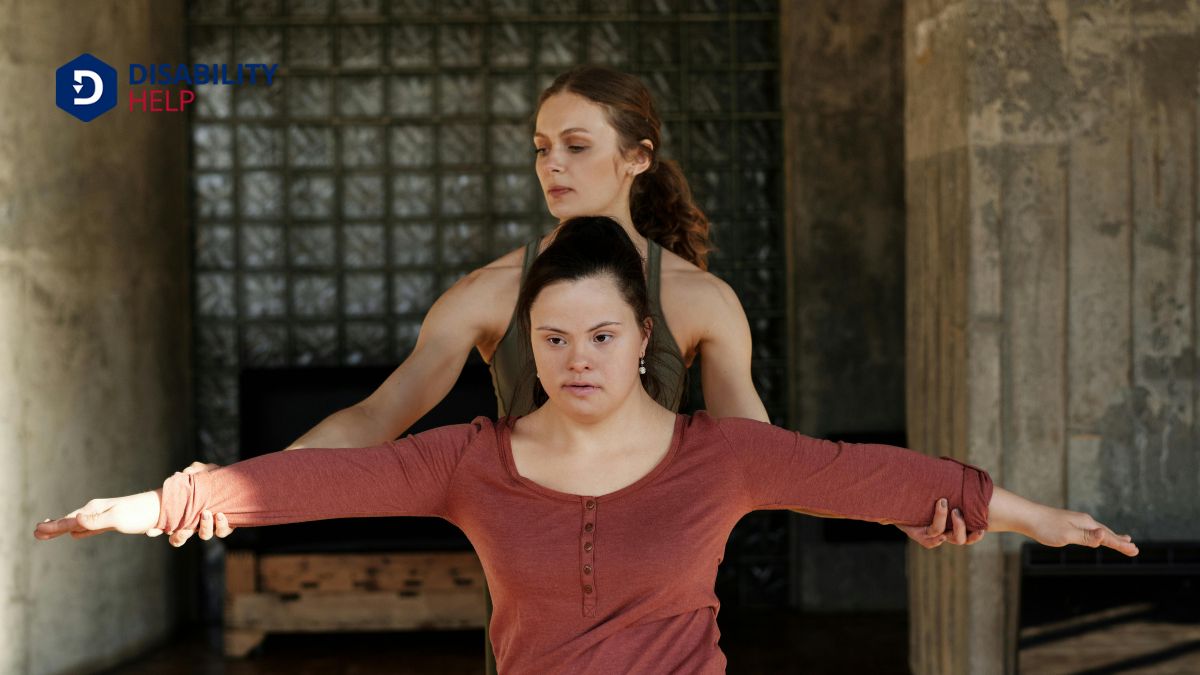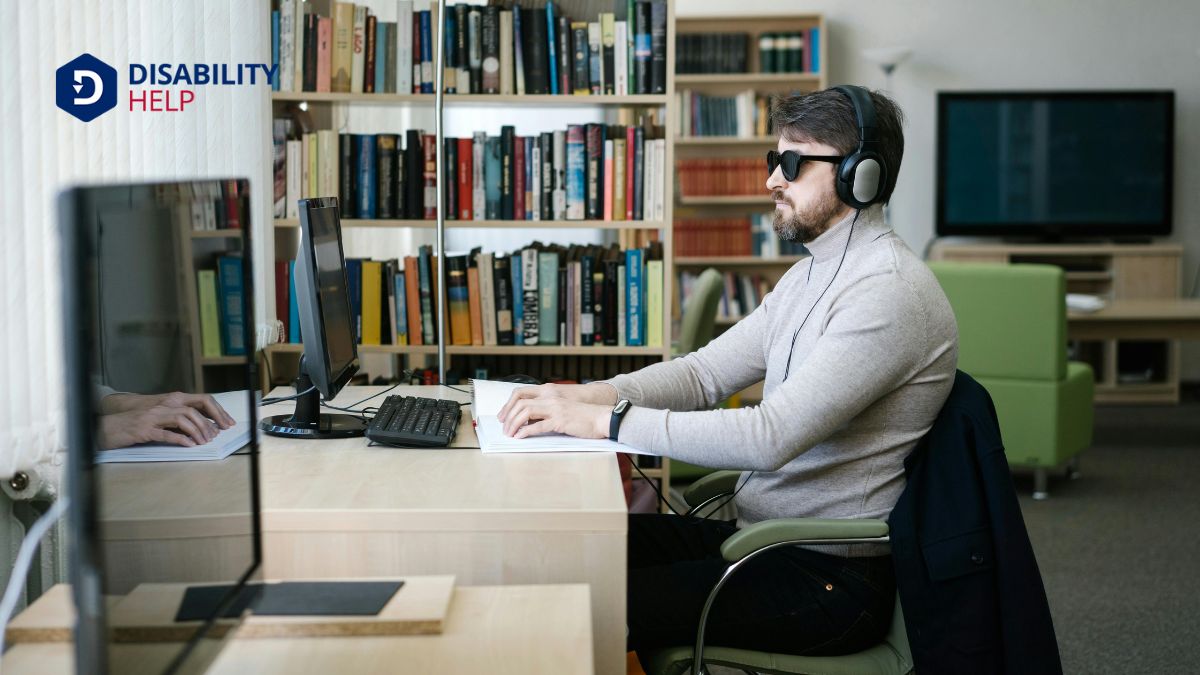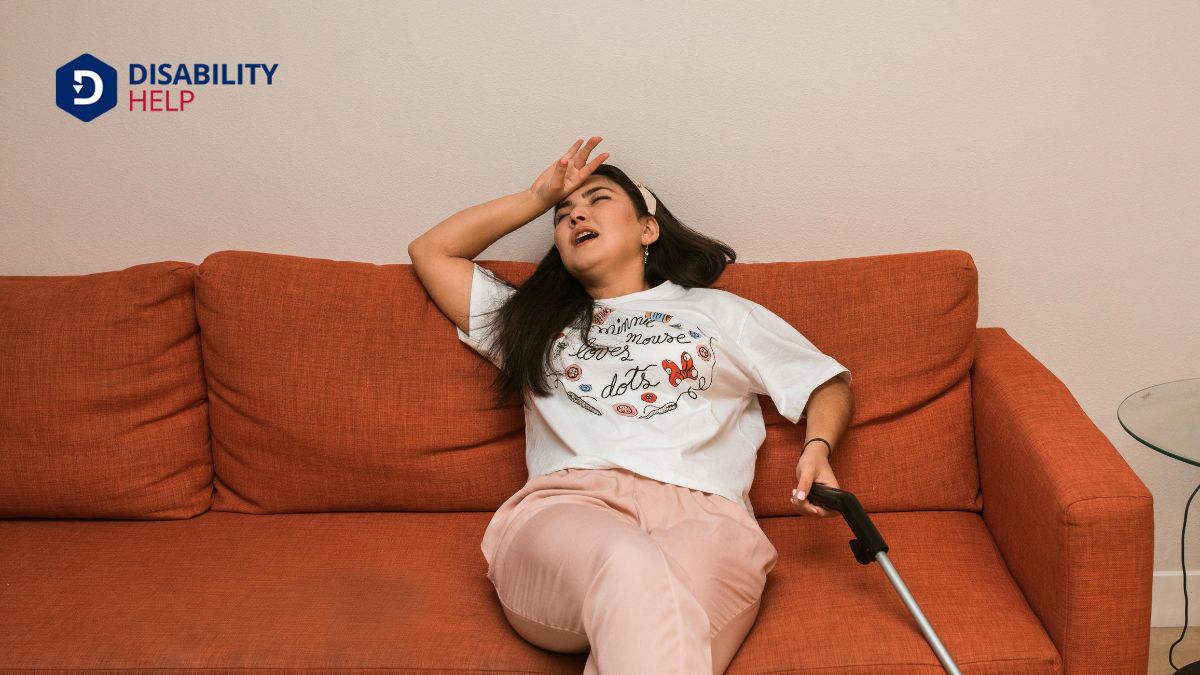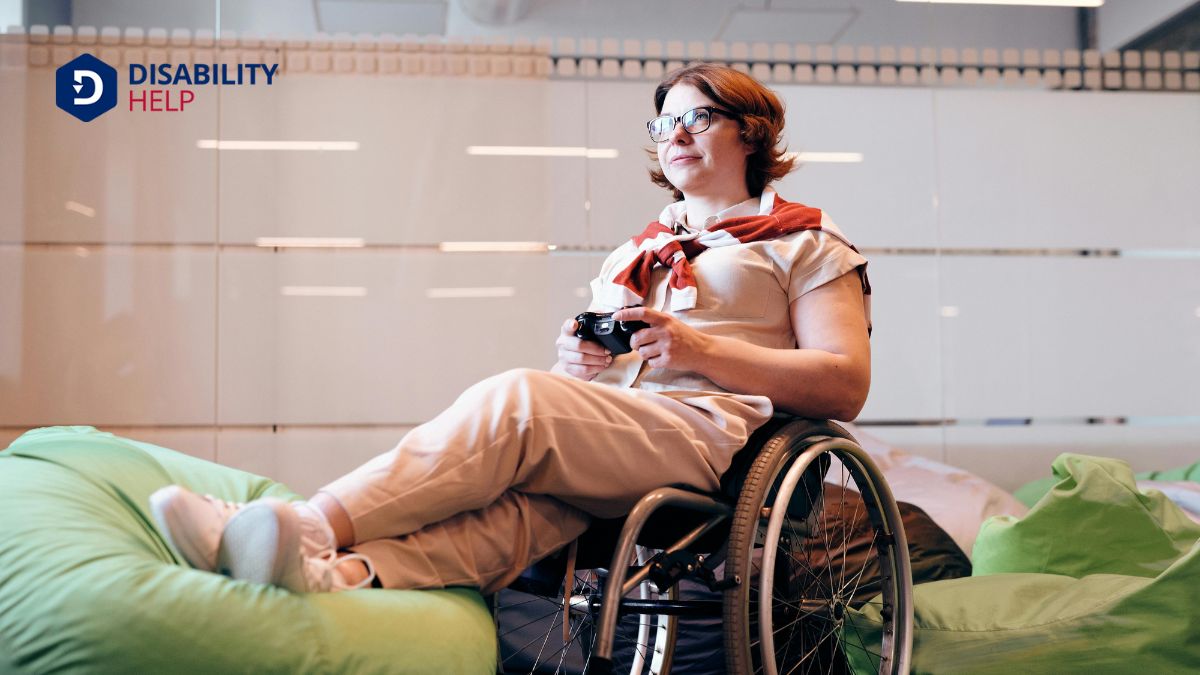Inclusive healthcare for disabled people is critical for equal accessThe principle that all individuals, including those with disabilities, should have equal opportunity... to quality services and improved health outcomes. We can't overlook this requirement, as laws like the ADA require fair treatment, and universal designThe design of products, environments, and services to be usable by all people, to the greatest exten... principles facilitate access for all. Facilities without barriers and efficient communication strategies eliminate hurdles and enhance comfort. Assistive technology additionally improves daily living and mobility. Attending to these elements guarantees that all individuals, irrespective of ability, receive just and considerate care, which ultimately enhances our entire community. By comprehending these points, we'll appreciate the deeper significance of inclusive healthcare.
Key Takeaways
- Ensures equal access to healthcare, upholding civil rightsThe rights of individuals to receive equal treatment under the law, including protection against dis... guaranteed by Section 504A provision of the Rehabilitation Act of 1973 that prohibits discrimination based on disability in p..., ADA, and the Patient Protection and Affordable Care Act.
- Reduces healthcare disparities by addressing gaps in access and quality of care for disabled individuals.
- Enhances independence and self-sufficiency through accessible facilities and assistive technologies.
- Promotes inclusivity and respect, leading to improved health outcomes and overall well-being.
- Eliminates physical, financial, and communicational barriers, fostering a more equitable healthcare environment.
Legislative Framework
When it comes to securing inclusive healthcare for disabled people, understanding the legislative framework is essential. Key pieces of legislation like Section 504 of the Rehabilitation Act of 1973A U.S. law that prohibits discrimination based on disability in federal programs and services, inclu... and the Americans with Disabilities Act (ADA)A U.S. law that prohibits discrimination against individuals with disabilities in all areas of publi... provide the foundation for protecting disabled individuals against discrimination. These laws guarantee that people with disabilities have equal access to healthcare services, which is critical for promoting their overall health and well-being.
The Patient Protection and Affordable Care Act further enhances healthcare choices for people with disabilities, offering them more opportunities to receive the care they need. By designating disability status for health disparities assessment, the ADA helps identify gaps in healthcare access and outcomes, fostering more equitable treatment.
Our legislative framework doesn't just stop at providing access; it also ensures civil rights and equal opportunities across various areas of life, including healthcare. These laws work together to create a more inclusive environment where disabled individuals aren't marginalized or overlooked.
Understanding these laws empowers us to advocate for better health care and ensure that everyone, regardless of their disabilities, receives the quality care they deserve. We must continue to support and uphold these protections to foster a truly inclusive healthcare system.
Universal Design Principles

Universal design principles are essential for creating healthcare environments that are accessible to everyone, regardless of their abilities. These principles, including equitable use and flexibility, are designed to benefit individuals with diverse abilities. By incorporating them, we can reduce health barriers for those with physical disabilities.
For instance, tolerance for error in design helps minimize unintended consequences, making healthcare settings safer and more navigable for individuals with disabilities. Imagine a hospital room where controls and equipment are intuitively placed and accessible from a seated or standingThe legal right to bring a lawsuit, which requires that the individual bringing the suit has a direc... position—this kind of thoughtful design can make a world of difference.
Universal design also emphasizes simplicity and perceptibility, ensuring that spaces are easily understandable and usable by everyone. This approach enhances access to quality healthcare, making sure that no one is left behind due to poorly designed facilities.
When we implement universal design principles, we facilitate equal access and usability for all individuals, regardless of their ability. By prioritizing these principles, we're not just creating better healthcare environments; we're fostering inclusivity and ensuring that everyone has the opportunity to receive the care they need. Let's commit to making our healthcare systems truly accessible for everyone.
Accessibility and Accommodations
As we prioritize inclusive healthcare, barrier-free medical facilities and effective communication strategies are essential. These accommodationsModifications or adjustments in healthcare settings to support patients with disabilities. guarantee that everyone, regardless of ability, can access and participate fully in their healthcare. Let's explore how we can implement these measures to create a truly inclusive environment.
Barrier-Free Medical Facilities
Barrier-free medical facilities are essential in guaranteeing that people with disabilities can access healthcare services without unnecessary obstacles. These healthcare facilities must integrate features that promote accessibilityThe design of products, devices, services, or environments to be usable by people with disabilities.... and equitable healthcare access. For instance, having ramps, wide doorways, and accessible exam tables are non-negotiables. Accommodations, such as sign language interpreters and braille materials, are critical for enhancing communication for individuals with disabilities.
To make this concept clearer, let's look at three key elements of a barrier-free medical facility:
- Physical Accessibility: This includes ramps, wide doorways, and adjustable exam tables that ensure all patients can navigate the facility comfortably.
- Communication Aids: Sign language interpreters, captioning services, and braille materials help in breaking down communication barriers, making healthcare more inclusive.
- Additional Accommodations: Designated parking spaces and accessible restrooms are essential for creating a welcoming environment for all patients.
These accommodations aren't mere conveniences; they're necessary for promoting maximum participation and comfort. By eliminating physical and communication obstacles, we guarantee everyone has equitable access to the healthcare they need. It's our responsibility to create an inclusive environment where every patient feels valued and supported.
Effective Communication Strategies
Effective communication strategies are vital in ensuring that disabled individuals receive the best possible healthcare. By establishing clear communication plans, we can address the unique needs of deaf patients and offer guidance for low-vision patients. Accessibility and accommodations must be integrated into our healthcare systems to support the blind and other individuals with disabilities.
When we prioritize planning for accessibility in communication, we enhance the quality of care and patient satisfaction. For example, providing materials in braille or large print can be a simple yet efficient way to support low-vision patients. Similarly, utilizing sign language interpreters or real-time captioning can markedly improve interactions with deaf patients.
Addressing the barriers faced by people with disabilities is essential. We must identify these obstacles and take proactive steps to eliminate them. This might include training healthcare staff on disability etiquetteGuidelines and practices for interacting respectfully and appropriately with individuals with disabi... or ensuring that communication devices are available and functional.
Empowering individuals with disabilities through improved communication accessibility leads to better health outcomes and experiences. By making these accommodations, we demonstrate our dedication to inclusive healthcare, ensuring that everyone receives the understanding and care they deserve. Let's continue to develop and implement these strategies to create a more inclusive healthcare environment for all.
Assistive Technology

Let's focus on how assistive technology can transform daily activities for disabled individuals. From enhancing mobility with wheelchairs to improving communication with specialized devices, these tools empower people to live more independently.
Enhancing Daily Activities
Assistive technology plays a pivotal role in enhancing daily activities for people with disabilities, offering a spectrum of solutions from low-tech canes to high-tech communication aids. By integrating these tools into their lives, individuals gain increased accessibility and independence, which greatly boosts their quality of life.
We can see the transformative power of assistive technology in various aspects of daily living activities:
- Smart Home Devices: These devices allow individuals to control their environment through voice commands or smartphone apps, making it easier to manage tasks like adjusting lighting, controlling temperature, and securing the home.
- Adaptive Tools: Items such as specialized kitchen utensils or modified computer keyboards enable people with disabilities to perform routine tasks more efficiently and comfortably.
- Communication Aids: Devices like speech-generating tools and text-to-speech software help individuals with communication challenges express themselves clearly, fostering better social interactions and personal relationships.
Embracing these innovations means we're not just providing tools but also promoting the autonomy and self-sufficiency of disabled individuals. As a society, we must prioritize making these technologies widely available and ensuring that everyone has the opportunity to benefit from them. By doing so, we create a more inclusive and supportive environment for all.
Expanding Mobility Options
Expanding mobility options for people with disabilities is necessary for fostering independence and inclusionThe practice of creating environments in which any individual or group can be and feel welcomed, res.... With the right assistive technology, individuals gain the freedom to navigate their environments more confidently. Mobility aidsDevices designed to help individuals move around more easily, such as canes, walkers, or wheelchairs..., such as wheelchairs and walkers, are essential tools that enhance accessibility, allowing people to move through their daily lives with greater ease.
Smartphone technology has also emerged as a powerful form of assistive technology. For example, GPS apps can help individuals with visual impairments navigate unfamiliar areas, while voice-activated features provide hands-free control. These advances in technology greatly improve accessibility, making everyday tasks more manageable and fostering a sense of independence.
Assistive devices range from low-tech tools like canes to high-tech innovations like powered exoskeletons. Regardless of the complexity, each device serves to support daily living activities, ensuring that people with disabilities can participate fully in society.
Access to these technologies is vital for promoting independence and inclusion, enhancing the quality of life for individuals with diverse needs.
Improving Communication Access
Enhancing communication access through assistive technology is crucial for ensuring that people with disabilities can interact effectively with healthcare providers. By leveraging these technologies, we can bridge the communication gap that often exists in healthcare settings.
Assistive technology offers various tools that cater to different disability experiences:
- Screen readers and text-to-speech software: These tools are essential for individuals who are blind or have speech impairments. They convert text into audible speech, allowing for better interaction with healthcare providers.
- Braille displays and alternative communication devices: These aids enable those with visual or communication challenges to access written information and express themselves more clearly.
- Video remote interpreting services and sign language interpreters: For deaf individuals, these services provide real-time communication access, ensuring they fully understand their medical information and instructions.
Additionally, augmentative and alternative communication (AAC) devices provide voice output and visual support, helping those with severe communication difficulties.
Telecommunication devices for the deaf (TDD) and video relay services further enhance real-time communication access for individuals with hearing impairments.
With these tools, we can notably improve the healthcare experience for people with disabilities, ensuring they receive the quality care they deserve.
Independent Living Services

Independent Living Services are necessary for promoting self-advocacyThe act of representing oneself and one’s interests, particularly by individuals with disabilities..., choice, and control over daily tasks for individuals with disabilities. By focusing on these core principles, we can guarantee that people with disabilities lead fulfilling and self-directed lives. Centers for Independent Living provide resources, support, and advocacyThe act of arguing in favor of, supporting, or defending the rights and interests of individuals or ..., enhancing the quality of life for those they serve. These centers play a vital role in fostering self-advocacy, helping individuals navigate daily challenges, and making informed decisions about their lives.
Assisted living offers another layer of support, providing flexible assistance based on changing needs. This adaptability ensures that individuals with disabilities receive the help they need without sacrificing their independence.
NASUAD collaborates with state agencies to advocate for aging and disability services, working to improve independence and well-being. Their efforts guarantee that policies and programs are in place to support independent living services.
When we prioritize these services, we empower individuals with disabilities to take control of their lives. They gain the confidence to advocate for themselves, make choices that reflect their preferences, and live with dignity. By supporting independent living services, we contribute to a more inclusive and fair healthcare system for all.
Healthcare Barriers
Disabled individuals face significant barriers when accessing healthcare, creating a landscape of inequality and unmet needs. These barriers often stem from multiple sources, making it challenging for disabled people to receive the care they require.
Firstly, physical barriers in healthcare facilities can prevent access to essential services. Inaccessible buildings, lack of adaptive equipmentDevices that assist individuals with disabilities in performing ADLs, such as grab bars or shower ch..., and inadequate transportation options make it hard for disabled individuals to reach and navigate medical spaces.
Secondly, we encounter affordability issues. Disabled individuals face a 50% higher risk of catastrophic healthcare costs compared to non-disabled individuals. This financial strain can deter them from seeking necessary treatments and medications.
Thirdly, stigmaThe negative attitudes and discrimination faced by individuals with disabilities due to societal ste... and negative attitudes from healthcare providers exacerbate these challenges. These attitudes can discourage disabled individuals from seeking help, leading to delays in diagnosis and treatment.
Additionally, a lack of accessible information and discriminatory policies can prevent disabled people from obtaining private health insuranceA system for paying for medical services, often covering preventive, diagnostic, and treatment costs..., further limiting their healthcare options.
Equitable Healthcare Interventions
To address the significant differences in healthcare access faced by disabled individuals, we need to prioritize fair healthcare interventions. These interventions are vital for promoting inclusive healthcare services that cater to the diverse needs of disabled populations. By doing so, we can guarantee that everyone receives quality care, regardless of their physical or cognitive abilities.
Data insights and issue briefs highlight the profound impact disabilities have on healthcare access. They also shed light on opportunities for quality improvement. We need to use this information to tailor our healthcare systems effectively. Prioritizing fair healthcare interventions won't only lead to improved health outcomes but also help reduce the barriers that disabled individuals often encounter.
It's important to implement accessible services and remove physical and communication barriers. This includes everything from providing sign language interpreters to making sure that medical facilities are wheelchair accessible. By making these changes, we can create a more inclusive healthcare environment that genuinely serves everyone's needs.
Let's commit to these changes. By focusing on fair healthcare interventions, we can bridge the gap in healthcare access and ensure that disabled individuals receive the respectful and thorough care they deserve.
Financial Challenges
Coping with the financial challenges in healthcare is a demanding task for many individuals with disabilities. We face a myriad of financial constraints that greatly impact our ability to access necessary healthcare services. For instance, 50% of persons with disabilities can't afford healthcare due to these constraints. This situation is exacerbated by the higher risk of catastrophic healthcare costs, which we're 50% more likely to face compared to those without disabilities.
There are several key factors that contribute to these financial difficulties:
- Healthcare Costs: The expenses for medical care, rehabilitationThe process of helping individuals with disabilities achieve and maintain their optimal physical, se..., and assistive devices can be overwhelming. These costs often lead to notable financial burdens, especially when frequent updates to assistive devices are required, such as for children.
- Discriminatory Policies: Many of us encounter barriers due to discriminatory policies and a lack of accessible information, which hinder our access to private health insurance. This makes it even more challenging to manage healthcare costs effectively.
- Assistive Devices: The expense of assistive devices, including the need for frequent replacements or upgrades, adds to the financial strain on families.
Understanding these challenges is essential for advocating for more inclusive healthcare policies that address these financial burdens effectively.
Quality Care Impact

Addressing the financial challenges in healthcare is just one part of the equation; equally significant is ensuring the quality of care we receive. Quality care during pregnancy can vastly alter the course of potential disabilities. When expectant mothers receive the appropriate care, the risk of developing certain disabilities can be minimized, setting a strong foundation for the individual's future.
Early interventionServices provided to young children with developmental delays to improve outcomes, including therapi... for cognitive and physical disabilities is another vital factor. When we prioritize early treatment, we not only improve immediate health outcomes but also enable individuals to thrive long-term. Rehabilitation services play an essential role here, helping individuals regain or improve their functional abilities.
Sensory impairments, such as vision or hearing lossPartial or total inability to hear sounds in one or both ears., also benefit greatly from early intervention. When addressed promptly, these impairments can be managed more effectively, resulting in better overall quality of life for individuals with disabilities.
Frequently Asked Questions
Why Is Inclusion Important for People With Disabilities?
Inclusion matters because it guarantees everyone, regardless of ability, gets fair access to essential healthcare. We must break barriers and improve services, so disabled individuals receive the care and respect they deserve. Let's make healthcare equitable!
Why Is Healthcare Important for People With Disabilities?
We need to guarantee healthcare for people with disabilities because they face more health issues and barriers. Quality healthcare can prevent catastrophic costs and improve their well-being. Let's work together to make healthcare accessible for everyone.
Why Is Making Healthcare More Accessible and Inclusive Important to You?
Making healthcare more accessible and inclusive is important to us because it guarantees everyone, regardless of their abilities, gets the care they need. We believe in fairness and equality, and inclusive healthcare supports these values.
Why Is It Important to Accommodate People With Disabilities?
It's important to accommodate people with disabilities because they often face barriers that prevent access to essential services. Let's make sure everyone receives the healthcare they need, reducing financial strain and improving overall well-being for all.
Conclusion
In prioritizing inclusive healthcare for disabled people, we're not just following legislative frameworks or implementing universal design principles. We're ensuring everyone has access to quality care, assistive technology, and independent living services. By addressing healthcare barriers and financial challenges, we create equitable healthcare interventions that truly make a difference. Together, we can impact the quality of care and promote a more inclusive, compassionate healthcare system for all. Let's make this a reality.





